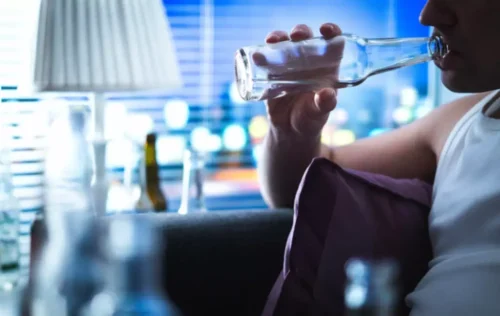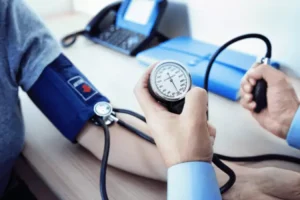
This measurement takes into account the systolic blood pressure and the diastolic blood pressure. ST extracted data, checked data entry, conducted data analysis, interpreted study results, and drafted the final review. Many interrelated changes are possibly responsible for the biphasic effect of alcohol on blood pressure.
- Rossinen 1997 and Van De Borne 1997 reported withdrawal of vagal tone and reduced heart rate variability within an hour after alcohol consumption; this explains the increased heart rate.
- If you consistently consume significant amounts of alcohol, your CNS gets used to this effect.
- Your body works hard to keep your brain in a more awake state and to keep your nerves talking to one another.
- Vijaya Musini (VM) contributed to data analysis, interpretation of the final result, and editing of the final draft of the review.
- Elevation Behavioral Health is an upscale residential treatment center fully dedicated to the most innovative treatment of mental health disorders.
Ariansen 2012 published data only

Your doctor may be able to connect you with shelter programs for people recovering from alcohol addiction. In addition to the health benefits, when you stop drinking for any amount of time it automatically saves you money. Research shows that drinking large amounts of alcohol before bedtime leads to decreased sleep onset and disrupted, poor quality sleep later in the night. While many think drinking alcohol before bed will help them nod off and stay asleep, it’s quite the opposite. “Again, depends on what the baseline alcohol consumption is,” she said. “[The bottom line] is, protect the heart with [a] low amount of alcohol, but increase the risk of cardiovascular disease with high amount of alcohol,” Dasgupta said.
MODERATE SYMPTOMS (CIWA-AR SCORE OF 10 TO 18 OR SAWS SCORE GREATER THAN
- It also regulates metabolism, immune function, and inflammatory pathways.
- A healthcare provider may request daily visits during which they will likely run blood tests and monitor vital signs until symptoms stabilize.
- Symptoms can range from headache, elevated blood pressure, heart palpitations, and nausea and vomiting to tremors, hallucination and in severe cases death.
- A counselor can help someone prepare for life after withdrawal and provide support as they navigate quitting drinking.
- All randomised controlled trials (RCTs) that compared alcohol to placebo or similar tasting non‐alcoholic beverages were included in this systematic review.
In cases of disagreement, the third review authors (JMW) became involved to resolve the disagreement. When necessary, we contacted the authors of studies for information about unclear study design. All extracted data were entered and double‐checked in RevMan 5.3 software (Review Manager (RevMan)). To https://ecosoberhouse.com/ determine short‐term dose‐related effects of alcohol versus placebo on systolic blood pressure and diastolic blood pressure in healthy and hypertensive adults over 18 years of age. In some cases, unpredictable withdrawals symptoms can suddenly emerge on days 3-4, called the delirium tremens (DTs).

Stage 2: Moderate Withdrawal
Consequently, the interprofessional healthcare team must ascertain the most suitable setting based on a patient’s symptoms. Second, lack of representation of the female population can alcohol lower blood pressure was notable in the included studies. Only four studies included almost equal numbers of male and female participants (Buckman 2015; Foppa 2002; Maufrais 2017; Zeichner 1985).
We are also moderately certain that high‐dose alcohol decreased blood pressure within six hours, and the effect lasted up to 12 hours. Heart rate increased significantly after alcohol consumption and remained increased at all times measured. Anyone who is having severe symptoms of alcohol withdrawal syndrome, such as seizures, hallucinations, or prolonged vomiting needs immediate medical treatment. Most people with mild to moderate alcohol withdrawal don’t need treatment in a hospital. But severe or complicated alcohol withdrawal can result in lengthy hospital stays and even time in the intensive care unit (ICU). Symptoms outside of the anticipated withdrawal period or resumption of alcohol use also warrants referral to an addiction specialist or inpatient treatment program.
- Articles are selected for credit designation based on an assessment of the educational needs of CME participants, with the purpose of providing readers with a curriculum of CME articles on a variety of topics throughout each volume.
- Seeking help for addiction may feel daunting or even scary, but several organizations can provide support.
- If a person has alcohol use disorder, their body gets used to a certain amount of alcohol in their system.
- We also found moderate‐certainty evidence showing that alcohol raises HR within the first six hours of consumption, regardless of the dose of alcohol.
- The hypertensive effect of alcohol after 13 hours of consumption could be the result of the rise in vasoconstrictors and the homeostatic response to restore blood pressure.
Recognizing Patients at Risk for AUD
Symptoms are often at their worst around 24 to 72 hours after you stop drinking. Alcohol withdrawal delirium (AWD), commonly known as delirium tremens (DT), is the most serious symptom of alcohol withdrawal. Mild withdrawal symptoms often begin within 6 to 12 hours after your last drink. Consuming alcohol can increase the risk of high blood pressure and other metabolic conditions in several ways. For example, alcohol can affect calcium levels, cortisol levels, and baroreceptor sensitivity, all of which can lead to increases in blood pressure.
Karatzi 2013Maufrais 2017 and Van De Borne 1997 measured blood pressure before and after treatment but did not report these measurements. Several RCTs have reported the magnitude of effect of alcohol on blood pressure, but because those trials are small, their findings are not sufficient to justify a strong conclusion. In 2005, McFadden and colleagues conducted a systematic review of RCTs, which investigated the haemodynamic effects of daily consumption of alcohol (McFadden 2005). Based on nine RCTs in which participants consumed alcohol repeatedly over days, these review authors reported that alcohol increases SBP by 2.7 mmHg and DBP by 1.4 mmHg. However, they excluded studies for which the duration of BP observation was less than 24 hours and articles published in non‐English languages. We believe that inclusion of those studies will provide useful information about the dose‐related magnitude and time‐course effect of alcohol on blood pressure in people with both normal and elevated blood pressure.

He worked for many years in mental health and substance abuse facilities in Florida, as well as in home health (medical and psychiatric), and took care of people with medical and addictions problems at The Johns Hopkins Hospital in Baltimore. He has a nursing and business/technology degrees from The Johns Hopkins University. There are many resources available for anyone who is ready to stop drinking for good, or who wants to reduce the harm alcohol is causing in their life by cutting down. As you continue to commit to long-term recovery, support group meetings like Alcoholics Anonymous (AA) or online support communities might be helpful.
Petrone 2014 published data only

